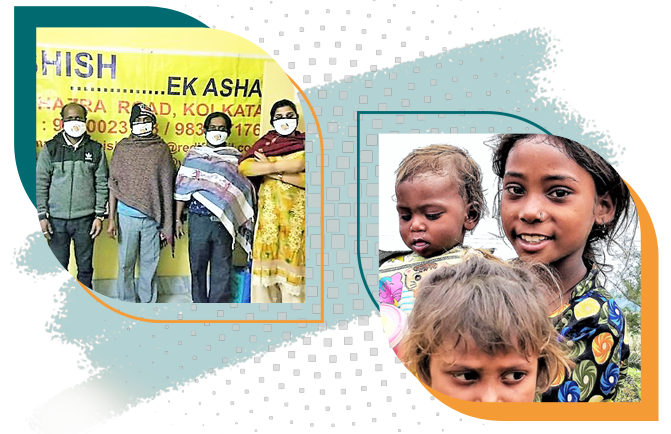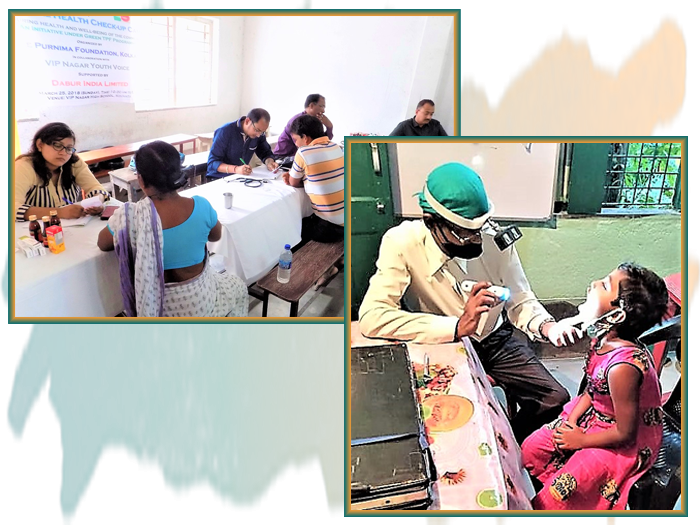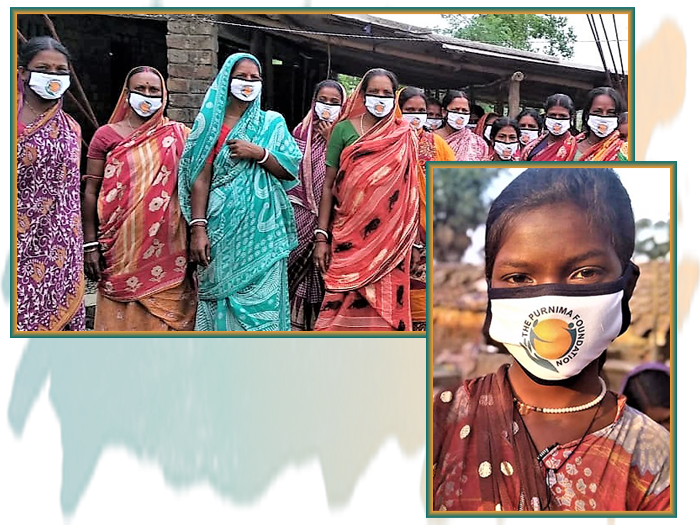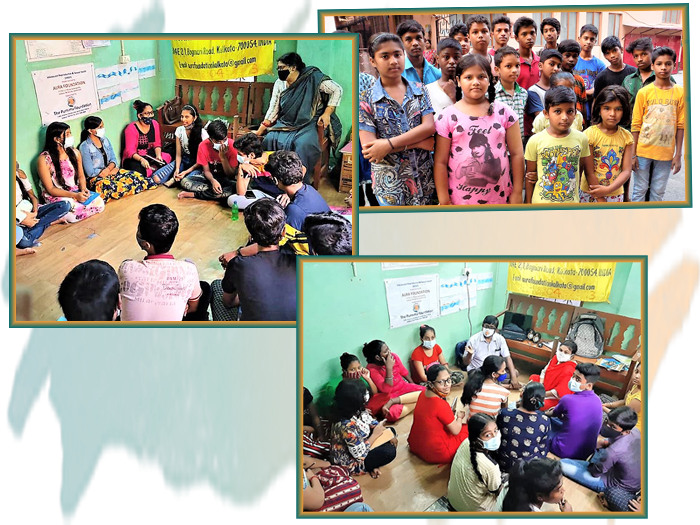
The Foundation has a proactive program that provides it with the agility to meet sudden needs in communities where it provides support. This is best exemplified by its quick action on combating Covid-19 transmission in Indian rural communities. The Foundation is well placed to immediately put in place any sudden programs that may be required as the virus continues its mutational changes.
The Foundation also undertakes longitudinal programs in the health sector that span several years, focussed primarily on sexual health, defence against transmissible diseases, and protection from discriminatory practices.
The Foundation is able to expand on its health programs throughout the communities it serves based on further general or targeted funding.

The importance of continuous health vigilance and attending to symptoms at the earliest stages are the two best ways to combat the emergence of serious disease. Such early medical care is however lacking in most rural communities across India, which often leads to critical care needs that are difficult to meet.
In recognition of the importance of early care, the Foundation regularly undertakes campaigns in collaboration with local NGOs and volunteers in the medical field to provide early care. This program is a critically important deliverable, but also one that requires the largest outlay of funding.

The sudden emergence of Covid-19 in early 2020 with its potentially fatal consequences set in motion the need to provide both information and health protection, especially to remote communities with little outside access. The Foundation quickly put in place a preventive program by creating its own face masks and thereafter distributing them to various remote communities.
Several thousand masks have been distributed over a two-year period with the likely result that disease transmission was significantly alleviated in those communities. The distribution of masks, accompanied by an information campaign on the disease, has been highly effective and welcomed in these communities, with the demand for additional masks having grown steadily.

Adolescent boys and girls in rural families have little or no access to reproductive and sexual health counselling. This problem is compounded by the practice of early marriage and teenage pregnancy, which in turn is coupled with poor access to family planning. The result is the emergence of a reproductive health crisis among girls in rural West Bengal state.
To help mitigate this serious problem, the Foundation has created the Adolescent Reproductive & Sexual Health (ARSH) Program with the goal of improving access to information on reproductive and sexual health, making available sustainable reproductive health services, reducing the incidence of sexually transmitted diseases, and minimizing child marriage and early pregnancy through advocacy.
More than 300 youth in the state of West Bengal have benefitted from the ARSH program since its inception in 2015. Additionally, the Foundation has reached out to more than 1,500 adolescents as part of its advocacy program. An aspirational outcome of this effort is to help reduce gender-based violence and promote life skills that will give adolescents a chance to attain future happiness.
The ARSH program reaffirms the Foundation’s commitment to promoting gender equality and protection of adolescent rights.
